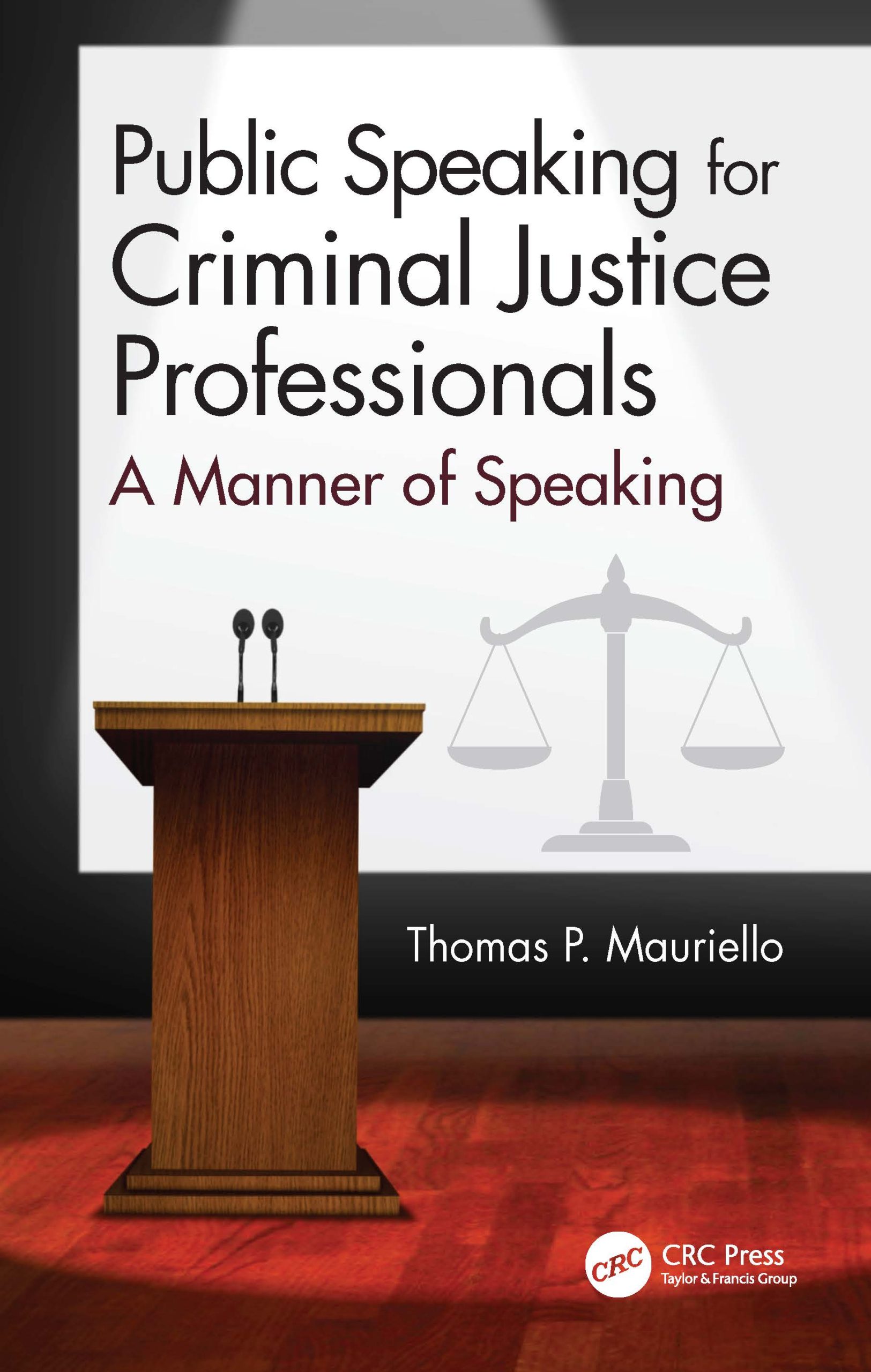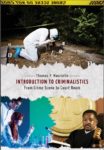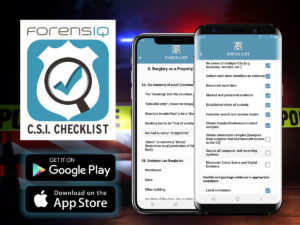ForensicWeek.com Show is airing Episode 40, “Computer Forensics and CyberCrime”
The ForensicWeek.com Show is airing Episode 40, “Computer Forensics and CyberCrime” Thursday, Nov. 14, 2013, 7 PM to 8 PM EST. Computer Forensics is a branch of digital forensic science pertaining to legal evidence found in computers and digital storage media. Cybercrime includes traditional crimes conducted through the use of a computer and the Internet. For example; hate crimes, telemarketing and Internet fraud, identity theft, credit card account thefts, and child pornography are considered to be cybercrimes when a computer is involved. Learn the truth about this topic from special guest, Retired Special Agent and Computer Forensics expert, Jim Christy. So join host, Tom Mauriello and his student interns at www.forensicweek.com and view the show LIVE, or watch it later at your convenience with all previous ForensicWeek.com shows. Thank you for watching!
Texas Governor’s Office Provides Forensic Training for Law Enforcement Officers
In an interesting report from the Texas A&M Engineering Extension Service, the Governor’s office of Texas has given Texas A&M a donation of around $300,000 for specific training. The training will be all about forensics, and it is for around 300 law enforcement officers and “noncommissioned” personnel in the state that will be investigating violent crimes. According to the article, the goal is to provide the training necessary to increase effectiveness of investigations on crime scenes throughout the state.
For the full article, click here!
Citation
Welch, W. (2013, October 30). Texas criminal justice division grant will fund CSI training for 300investigators. Retrieved from Texas A&M Engineering Extension Service website:http://www.teex.com/teex.cfm?pageid=teexresc&area=teex&storyid=1249&templateid=23
[Abstract written by Karl “Kip” Zenowich, ForensIQ Intern]
Grace’s Law
Grace’s Law
Cyber bullying has become a majorly hot topic in recent news. Thankfully, a new bill is in motion, the Misuse of Interactive Computer Service bill, or Grace’s Law, will give investigators and computer forensic experts a way to use their findings in these cases to get convictions. 15-year-old Grace McComas of Howard County committed suicide on Easter Sunday in 2012 due to months of cyber bullying. Grace’s family, along with Baltimore Ravens’ football player, Ray Rice, led a fight in support of legislation to make cyber bullying a legally punishable crime. Grace’s Law makes the bullying of a minor through use of technology, namely a computer or smartphone, illegal with the possibility of a fine up to $500 or one year in prison. On October 1, 2013, The Maryland General Assembly passed Grace’s Law.
To read more, click here.
Citation:
Ames, B. (April 11, 2013). Grace’s Law, a cyberbullying bill, called ‘landmark legislation’. In The Baltimore Sun. Retrieved October 23, 2013 from http://www.baltimoresun.com/news/maryland/howard/ellicott-city/ph-ho-graces-law-passes-20130410,0,4834495.story
[Abstract written by Alex Mitzel, ForensIQ Intern]
Another Tragedy Due to Cyberbullying
Another Tragedy due to Cyber Bullying
The recent case of a young Florida girl who committed suicide has received a lot of media attention. 12-year-old Rebecca Ann Sedwick ended her life last month in order to escape the cyber torment she received from a large group of girls – two in particular. Those two particular girls, of ages 12 and 14, were arrested last week for their involvement in the events leading to the suicide, failure to show remorse, and actions that suggested the cyber attacks would continue. This case has brought to light the many different anti-bullying programs in place in different states. It has also shed light on the fact that the amount of cyberbullying-related suicides of young people has risen significantly in the past several years. USA Today explains that they believe the most effective way to fight these bullies will actually not be through computer forensic investigations or legislation, but rather through peer disproval of the behavior. “Fighting back against bullies and denying them peer approval are the best antidotes.”
To read more, click here.
Citation:
CBSNews.com. (October 15, 2013). Rebecca Ann Sedwick suicide: 2 arrests made in death of bullied Florida girl. In CBSNews.com. Retrieved October 23, 2013 from http://www.cbsnews.com/8301-201_162-57607530/rebecca-ann-sedwick-suicide-2-arrests-made-in-death-of-bullied-florida-girl/
Sanburn, J. (October 16, 2013). A Florida Tragedy Illustrates Rising Concern about Cyber-Bullying Suicides. In Time. Retrieved October 23, 2013 from http://nation.time.com/2013/10/16/a-florida-tragedy-illustrates-rising-concern-about-cyber-bullying-suicides/
The Editorial Board. (October 23, 2013). Cyberbullying calls for new weapons: Our view. In USAToday. Retrieved October 23, 2013 from http://www.usatoday.com/story/opinion/2013/10/23/rebecca-sedwick-suicide-cyberbullying-criminal-editorials-debates/3173189/
[Abstract written by Alex Mitzel, ForensIQ Intern]
Do blow out games count as bullying?
Blow out games, in any sport, are never satisfying for both the winning and losing teams. Yet, in Texas, one unhappy parent took a loss to an extreme, calling Aledo High School’s 91-0 victory in a football game a case of bullying. The parent accused Aledo’s coach, Tim Buchanan, of “not easing up when the game was in hand.” Buchanan, however, had tried to stop the game from slipping out of control, when at halftime, he approached the referees and asked them to keep a running clock for the final quarter. According to Buchanan, his players had a hard time grasping how their actions could be defined as “bullying” against the definitions they had come to understand. With each bullying accusation, Texas law requires school districts to investigate the incident. For this case, the school district found that there had been “no grounds” for the complaint.
To see the full article, click here!
Citation: Weber, P. (October 23, 2013) MSN News. HS football coach: no bullying found in 91-0 win. Retrieved October 23, 2013 from http://news.msn.com/us/texas-dad-alleges-bullying-in-91-0-football-game.
[Abstract written by Emily McGowan, ForensIQ Intern]
Bully Deterrence
Can the criminalization of bullying deter the act? According to Professor Nadine Connell, the answer to that question is no. She argues that punishment in the criminal justice system might not be effective for either the bully or the victim. Punishment might not solely deter bullying because children and adolescents often respond to immediate interests, rather than weighing on long-term consequences, and lack the ability for emotional self-regulation. Instead, Dr. Connell suggests that the best way to combat bullying is for adults to quickly respond to it, and to encourage behavior that “benefits society and modeling such civility and respect ourselves.”
To read the full opinion, click here!
Citation: Connell, N. (October 23, 2013) USA Today. Criminal charges don’t deter bullies: Opposing view. Retrieved October 23, 2013 from http://www.usatoday.com/story/opinion/2013/10/23/bullying-bullies-rebecca-sedwick-nadine-connell-editorials-debates/3173171/.
[Abstract written by Emily McGowan, ForensIQ Intern]
Aiding the Road to Recovery
In the American criminal justice system, the individual most often forgotten in the process is the victim of the crime. The focus of the system centers on the rights of the offender and retribution for the crime committed against society. However, there have been modern efforts in empowering victims of crime through advocacy, victim’s rights, laws, and various other means. To help victims of crime cope in the aftermath of their trauma, restorative justice offers victims a chance for healing that the criminal justice process does not always fulfill. Instead of gaining revenge for the crime against them, victims can express their pain, and most importantly, hear the offender take accountability for their actions.
To learn more about restorative justice, check out the link here!
Citation: Lopez, J. KALW: Local Public Radio 97.1 San Francisco. Crime victims find healing through restorative justice. Retrieved October 16, 2013 from http://www.huffingtonpost.com/2013/09/30/government-shutdown-pickup-lines_n_4019358.html.
[Abstract written by Emily McGowan, ForensIQ Intern]
Computer Forensics, Taking Over
In this article, author Brian Wallace shows how computer forensics has begun to have a major effect on forensics as a whole. He goes over which crimes have had great benefit from computer forensics in the past, notable cases include the BTK killer and Scott Peterson. Provided in the article is a great diagram that gives examples from cases in the past that have been very notable. The diagram itself is an interesting read, along with the summary of it provided by Wallace.
Read the full article here!
Citation
Wallace, B. (2013, October 11). The power of computer forensics. Retrieved from Business 2 Community website: http://www.business2community.com/infographics/power-computer-forensics-infographic-0644262
[Abstract written by Karl “Kip” Zenowich, Forensiq Intern]
Baby Hope Finds Its Mother
DNA has linked the “Baby Hope” case to a mother. In 1991, a body was found on the side of the Henry Hudson Parkway. The body was badly abused and was not in good condition. Back in 2007, investigators exhumed the body in order to retrieve DNA evidence, but were not able to. In 2011, after many advances in DNA technology, they were able to retrieve a profile from the body. After a tip over the summer a person was matched to the case, and after DNA tests, was found to be the mother. This is an interesting case because it shows how much DNA technology has advanced in the only 4 years, from ’07 to ’11.
Full Article Here!
Citation
Press, A. (2013, October 8). NYPD: Mother in ‘Baby hope’ cold case found using DNA; cooperating with
authorities. Retrieved from ABC15 website: http://www.abc15.com/dpp/news/national/
nypd-mother-in-baby-hope-cold-case-found-using-dna-cooperating-with-authorities
[Abstract written by Karl “Kip” Zenowich, ForensIQ Intern]
Death Row Debate
The question of capital punishment provokes heated discussions even amongst the most moderate political minds. For the case of Warren Lee Hill, the controversy of whether or not mental capacity should play a role in death penalty cases has a profound impact on his current court appeal. In 2002, the Supreme Court ruled in Atkins v. Virginia that executions of mentally retarded criminals qualified as “cruel and unusual punishment.” Hill was already serving a life sentence for killing his girlfriend, when he received the death penalty conviction for killing a fellow inmate. However, his court-appointed lawyers, during his trial did not have the resources to obtain Hill’s IQ test scores of 70, thus the jury who sentenced him to death did not hear that Hill was mentally incapacitated at his trial. Despite the new evidence, previous courts did not acknowledge a “miscarriage of justice” as the information would only affect Hill’s sentence and not the verdict.
To read the full opinion, click here!
Citation: Clancy, M. USA Today. Supreme Court vs. Warren Lee Hill: Column. Retrieved October 2, 2013 from http://www.usatoday.com/story/opinion/2013/09/29/warren-hill-supreme-court-disabled-murder-column/2892171/.
[Abstract written by Emily McGowan, ForensIQ Intern]
A Second Chance, After the Death Penalty
A man put to death by the death penalty in Texas is having his case re-looked at. Cameron Todd Willingham was executed for the deaths of his three daughters in a fire in 1991. A phony testimony has come to light and now, investigators are checking out the case one more time. Not only was the testimony used against Willingham false, but the arson investigation that went on during the case was found to have “erroneous forensic analysis” which was “ the basis for Willingham’s conviction,” says author Bob Ray Sanders in his article on the “Star-Telegram” website. There is a call from the Innocence Project to reinvestigate the case.
For the whole article, click here!
Citation
Sanders, B. R. (2013, October 1). Further investigation needed in case of executed man.
Star-Telegram. [Abstract written by Karl "Kip" Zenowich, Forensiq Intern]
DNA Evidence Finds a Link Between California Cases
While the case is not solved, police have linked DNA from a murder earlier in the year to a 10 year old rape case. An interesting account is brought to you off of crimevoice.com as they describe a murder in February. The murder case apparently had evidence collected in the same area as where the rape from 2003 had occurred. The DNA was from the rape case had been collected and put into the FBI’s database, and was matched to the DNA collected from the murdered person, Sylvia Mark Flores. Because of simple DNA matching, a criminal who eventually will be caught will be charged with two counts of criminal activity, most likely putting him or her away for a nice long time.
For the full article, click here!
Citation
Brown, L. (2013, September 16). Cold case assault connected to early 2013 murder.
[Abstract written by Karl “Kip” Zenowich, ForensIQ Intern]
The ForensicWeek.com Show – Airing Episode 34 – “The Security Clearance Investigation”
The ForensicWeek.com Webcast Show is airing Episode 34 this Thursday, September 26th, 7:00 PM to 8:00 PM (EST). The show‘s topic is “The Security Clearance Investigation.” Just what does your life have to look like to be judged a person of trust and responsibility for a sensitive position? What should you expect when an agency, department or organization conducts a background investigation on you for a job or security clearance? Join Host, Tom Mauriello, and special guests, Washington, DC. Attorney, Mark Zaid, and the one and only D*I*C*Eman, Ray Semko, as they present a show that will give viewers a chance to better understand this explosive topic in wake of the shooting incident at the Washington Navy Yard. JUST GO TO www.forensicweek.com to view the show LIVE, or watch this episode or any of the previous shows at your convenience. Thank you for watching!
Civil Justice for Victims of Crime in Maryland, Free Training Seminar
The National Center for Victims of Crime, along with their cosponsors, will be offering two free training seminars on October 9th and 11th on giving victims access to necessary resources: filing civil lawsuits; future crime prevention; and financial aid in order to rebuild their lives in the aftermath of a crime. The program aims to inform on resources and strategies for victims considering civil lawsuits. A panel of attorneys will be present to answer specific questions on Maryland law. The seminars run from 9:00am to 4:30pm, and breakfast and lunch will be provided.
To learn more and to register check out the links below:
To attend the seminar in Washington, D.C. (10/9): https://www.signup4.net/Public/ap.aspx?EID=WASH73E
To attend the seminar in Marriottsville, MD (10/11): https://www.signup4.net/Public/ap.aspx?EID=MARY37E
Source: The National Center for Victims of Crime, http://www.victimsofcrime.org/
[Abstract prepared by Emily McGowan, ForensIQ Intern]
Government Crackdown on Polygraph Instructors
In order to send a “strong message” to individuals teaching methods on how to pass polygraph examinations, U.S. District Judge Liam O’Grady sentenced Chad Dixon, a little league coach and polygraph instructor, to eight months in prison for teaching up to a hundred people, including sex offenders and government employees, how to defeat lie-detector tests. This case and its decision led to questions regarding the government’s campaign against instructors like Dixon. Among the debates were whether or not the government should continue its hunt for these offenders, and where the line was drawn between an individual’s first amendment rights to discuss how to approach the polygraph exam and the “crime of teaching someone to lie while undergoing a government polygraph.”
Check out the full article here!
Source: The Seattle Times
Citation:
Taylor, M. The Seattle Times. Indiana man gets 8 months for lie-detector fraud. Retrieved September 11, 2013, from http://seattletimes.com/html/nationworld/2021772209_lyingpenaltyxml.html.
[Abstract written by Emily McGowan, ForensIQ Intern]






